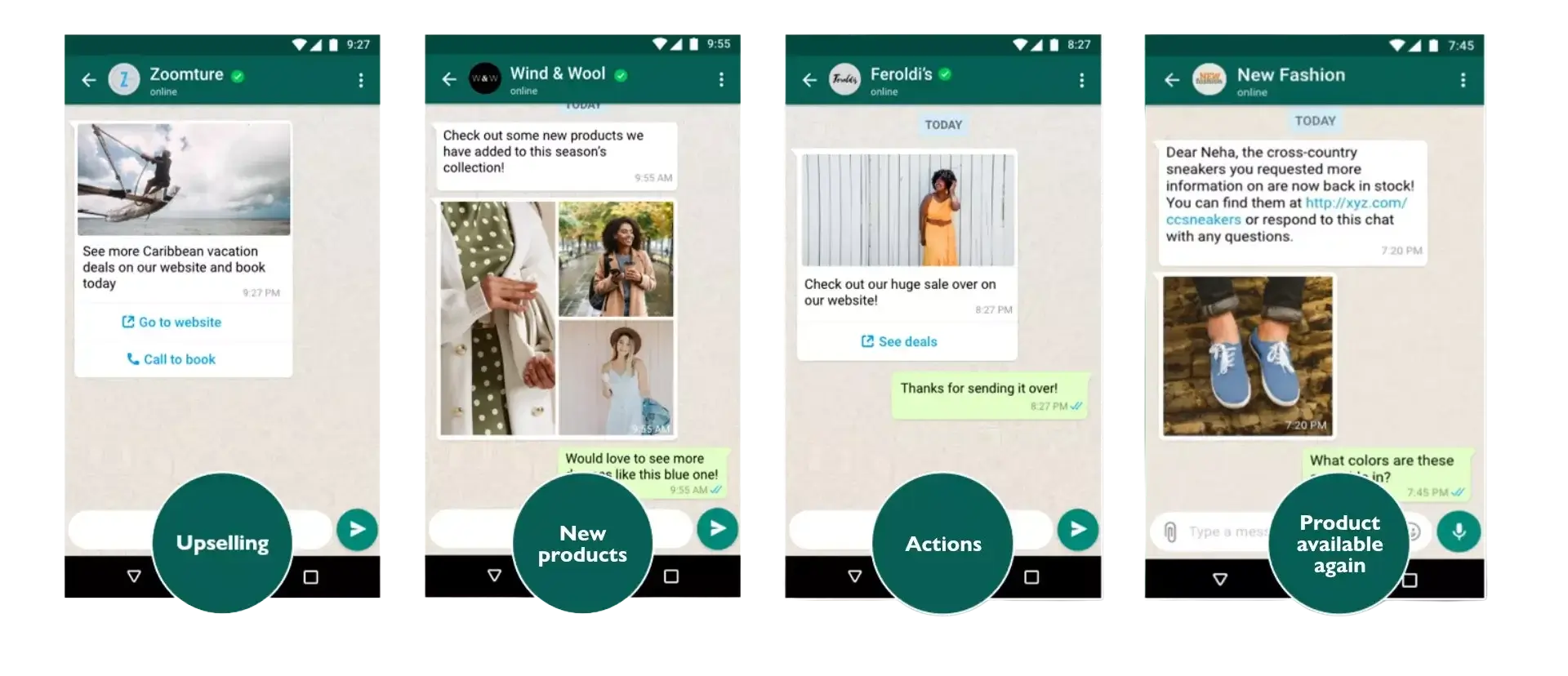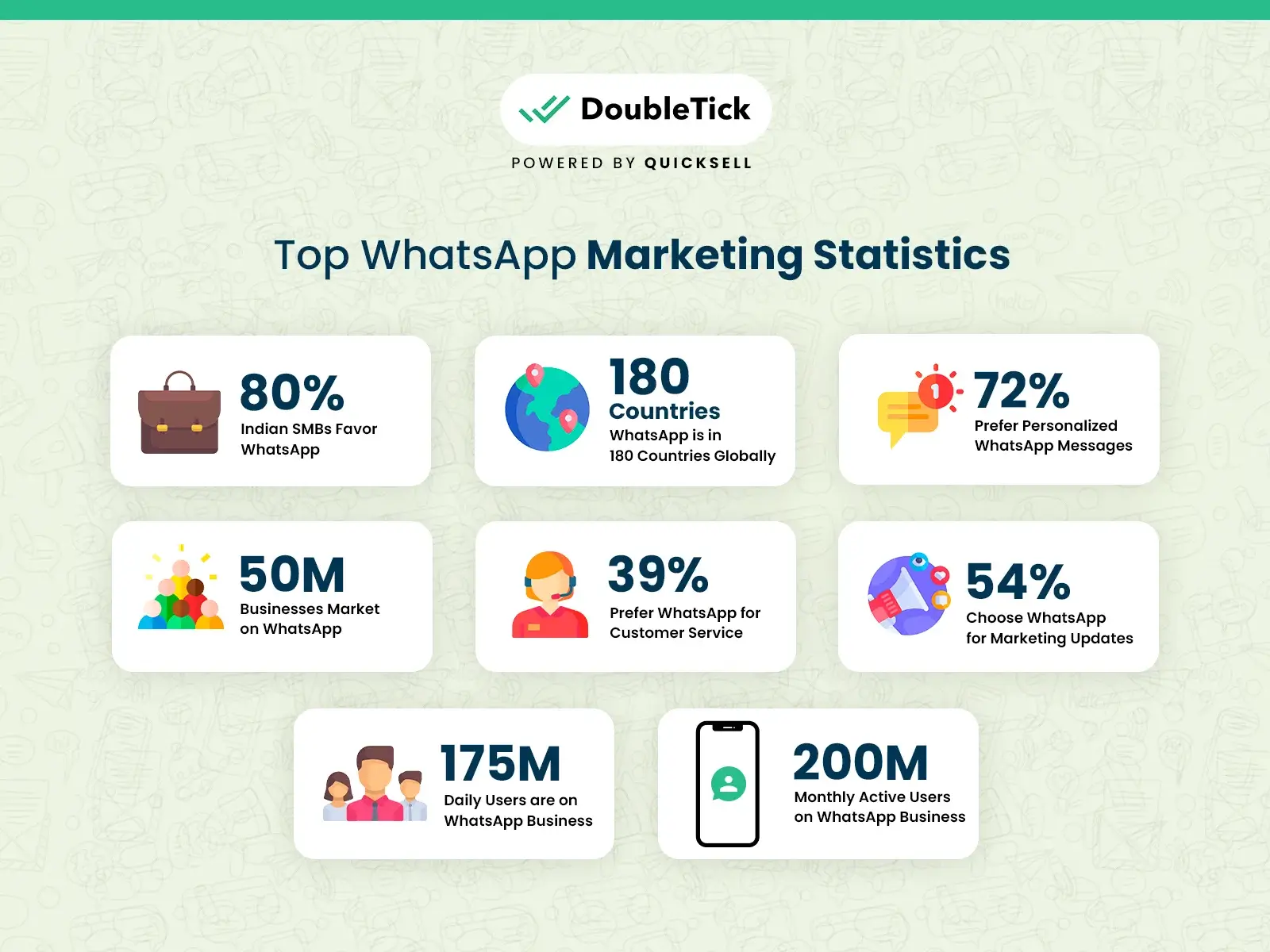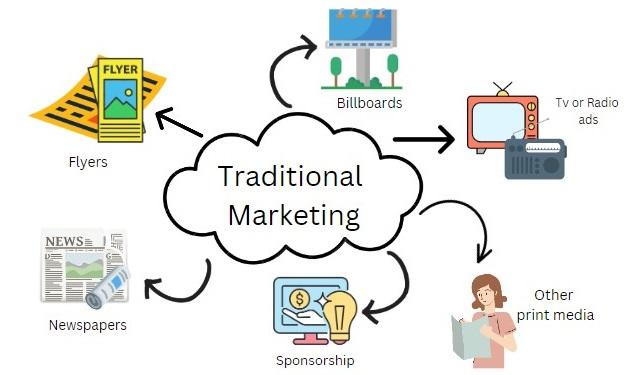Do you feel frustrated using the same marketing approaches that no longer bear fruit? Do you want to reach your target audience more personally and engagingly?
Look no further than WhatsApp Marketing! With over 2 billion MAU, WhatsApp has become a platform for businesses to reach more customers.
Whether real-time or instant answers, the level of engagement in WhatsApp marketing is beyond the scope of traditional marketing.
Do you think the WhatsApp marketing tool is viable for your business? We are here to help you make that crucial decision. This post will undoubtedly help you compare WhatsApp marketing with a contrast to traditional marketing.
This paper will take you through the benefits of WhatsApp marketing. Additionally, this work will help you choose between companies.
This post will show you examples of how brands use WhatsApp marketing tools to reach their sales goals and build relationships with customers.
So let us start the blog, Keep reading!
What is WhatsApp marketing?

WhatsApp marketing means performing a marketing activity on one of the popular messaging platforms, WhatsApp, to introduce your service or product, communicate with your clients, and achieve many other marketing goals.
The activity consists of developing and distributing engaging material, launching targeted advertising, and executing many more marketing initiatives to communicate remotely with your targeted customers.
It helps to create an opportunity for enterprises with over 2 billion monthly active users and over 1 billion daily active users to develop one-on-one interaction with consumers and drive meaningful engagement.
Next, we will cover the benefits of WhatsApp marketing.
What are the Benefits of WhatsApp Marketing?

WhatsApp marketing is a formidable weapon in the marketing environment, with several key advantages over traditional platforms. These include:
- Excellent Open Rates: WhatsApp messages' open rates are more than 90%, more than three times as high as the average email campaign's. Indeed, this will ensure that your messages are not just sent but also read, mitigating the risk that the material will be lost in the digital void.
- Real-time two-way engagement: WhatsApp facilitates two-way conversations so the recipient can click to respond, ask a question, or request further information. Since this occurs in real time, all interactions feel more intimate and instantaneous than those typically email or SMS.
- Advanced Automated Conversations: Smart Bots for Automatic Conversations can be built into WhatsApp, and you can use chatbots for hundreds of unique conversations at once. Active chatbots allow for smart, humorous, and human-like reactions, making them more efficient than standard programmed responses.
- Comprehensive Insights: WhatsApp provides comprehensive insights about your audience, not just monitoring the open and click rates. You’ll also be able to know who your audience is, how often they interact with your campaigns, and more. Such information would be genuinely helpful for customizing future discussions and knowing your recipient’s.
- Streamlined Multi-Agent Chat Management: The WhatsApp Business API offers multi-agent chat management. This implies that your team is allowed to run different chats simultaneously and that everything from WhatsApp is simpler than it appears. Everything is conducted using a single WhatsApp API number, with the assistance of the proper person.
Now, imagine harnessing all these benefits seamlessly with a single, powerful tool.
To leverage these benefits effectively, BotPenguin's WhatsApp AI chatbot is an excellent tool, enabling bulk messaging, human-like customer support, lead generation, and appointment booking. This powerful tool ensures high engagement rates, real-time interactions, and comprehensive insights, making it an indispensable asset for effective WhatsApp marketing strategies.
How Brands Are Using WhatsApp Marketing?
WhatsApp marketing has become a powerful tool for businesses, enabling them to turn messages into sales and make customers feel like VIPs.
Here are some examples of how brands are leveraging WhatsApp for marketing:
Renee Cosmetics
2-Step Abandoned Cart Recovery: Renee Cosmetics uses a 2-step WhatsApp reminder for abandoned carts, recovering 64% of their carts. The second reminder converts 230% more than the first, demonstrating a deep understanding of consumer behavior in the cosmetics industry.
Health & Wellness Brand
Click to WhatsApp Ads: A leading health and wellness brand effectively utilized Click to WhatsApp Ads, earning ₹38.46 lakhs in revenue from an investment of ₹13.39 lakhs.
The campaign helped them acquire 22,000 new leads, of which 3,800 became customers, highlighting the potential of integrating advertising with instant messaging platforms.
Suggested Reading:
How to Grow Your Business Using WhatsApp Marketing Automation
Dermawear
WhatsApp Popup Campaign: Dermawear raked in 700X return on investment after retargeting leads acquired via website popups on WhatsApp.
This strategy underlines the effectiveness of integrating modern opt-in tools into traditional digital platforms, especially in the fashion and apparel industry.
Auric
COD to Prepaid Conversion: Auric, an Ayurveda-inspired beauty and wellness D2C brand, launched a campaign to incentivize customers to prepay for their COD orders before they ship them.
Their strategic WhatsApp campaign converted 27% of COD orders to prepaid, significantly reducing logistical hassles and enhancing operational efficiency.
Dryza
Abandoned Cart Recovery: Dryza, an upscale fashion boutique, uses WhatsApp to drive an insane 1140x ROI.
They run a 4-step abandoned cart campaign to convert without offering any discount coupons, which could be a valuable lesson for high-AOV but lesser-known brands.
After looking into WhatsApp marketing, you now think it's time to look at traditional marketing.
What is Traditional Marketing?
Traditional marketing is the practice of marketing products or services via offline platforms utilizing many conventional methods such as print, broadcast, direct mail, and outdoor advertising.
Traditional marketing existed before digital marketing, leveraging existing mediums to reach target markets. Marketing strategies in conventional marketing terms include newspaper ads, TV commercials, radio ads, billboards, flyers, and brochures.
Traditional marketing aims to continue attracting clients via mass interaction and follow-up while enforcing several key aspects that are exposed to it again. Even so, this kind of marketing delivers interactions limited to audience engagement compared to digital marketing.
Now we will see the benefits of traditional marketing.

Benefits of Traditional Marketing
Traditional marketing offers numerous advantages that continue to make it a valuable component of marketing strategies:
- Tangible Presence: Physical elements like brochures, business cards, and billboards offer a tactile angle that allows users to interact with the company face-to-face.
- Wide Reach: Traditional marketing methods, such as broadcasting media such as television, radio, and print, can reach a wide and diversified audience irrespective of one's level of online feasibility.
- Local Targeting: Traditional marketing methods like geotargeting can target specifically located business areas, making them ideal for businesses with a niche local market.
- Established Trust: Conventional marketing channels such as Newspapers, magazines, and television have been the main way for brands to communicate with customers for long time and are highly popular among consumers, leading to trust and credibility.
- Strong Impact: Popular traditional marketing methods, like billboards with visual impact or advertising messages that are easily memorized and, therefore, lead to better brand recognition, can shape the right impressions in the public mind and help reach the desired goals.
Next, we will see the types of traditional marketing.
Types of Traditional Marketing Channels
Marketing methods of the past in general consisted of different physical channels designed for advertising.
Here are eight types of traditional marketing channels:
Handouts
Handouts are printed materials that illustrate information such as a firm's advertising campaign, an event, or an offer. They can be given away at an event or other public places to build awareness and present information about a company or product.
Billboards
The designs for billboards on major roads and highways carry advertisements and company logos that complement the visuals. They place pictures with short instructional messages into counterpart text that warrants the audience's memory, thus assisting in brand recall.
Direct mail
With direct mail marketing, consumers receive newspapers, T.V. ads, radio, flyers, or letters at their homes. The mailings are sent to the addresses of potential customers within a target area.
Opening a store right in a town will give an organization both its status and recognition. It will also help people know where they are exactly.
Print ads
Print ads afford companies more significant opportunities to reach potential customers through primary means, such as daily papers and journals. One useful way to advertise is to use newspapers or related magazines by showcasing more ads to create brand awareness and generate leads.
Event marketing
Marketing that occurs during seminars, conventions, or conferences is one type of event marketing, where users are positioned to get the word out about the shown products or services.
Being a part of sponsorships and organizing information boards at various neighborhood occasions is another approach to achieving this.
Broadcasting
Using a radio or a television for commercials is a good idea. One can achieve brand awareness at local or national level.
Engaging ads can captivate viewers and listeners alike, and specially made advertisement copy might lure them into taking action, such as researching the company or contacting it for further information.
Cold calling
Cold calling or telemarketing involves calling potential clients to describe the goods or services offered and create a personal bond.
Product placement
A product crash is the incorporation of a brand or product into the setting of a movie, television show, or other media format. After learning about both kinds of marketing, it's time to think about making an informed decision.
Suggested Reading:
Factors to Consider When Choosing Between Whatsapp Marketing and Traditional Marketing
Choosing between WhatsApp marketing and traditional marketing can take a lot of work for businesses.
Both methods have their own unique advantages and disadvantages, and the choice between them depends on various factors such as your target audience, budget, and marketing goals.
Here are some key differences between WhatsApp marketing tool and traditional marketing to help you make an informed decision:
Target Audience and Preferences
WhatsApp is especially preferred for reaching youthful, technology-skilled users and smart device users for whom messaging is frequent. In terms of age as well as social media activities, traditional marketing tools like print, TV, or radio may be more appropriate for old or those who are not active on social media.
Business Goals and Objectives
WhatsApp can be up to the quick boost of sales, establishment and increasing brand awareness, and purposeful dialogues with the clients. Old style marketing is usually better than the others for brand-building, the introduction of new items, or reaching a huge community.
Budget and Resources
WhatsApp marketing tool is the right approach for small companies, as there is no need to make a higher initial investment. Classical marketing, though, does need more cash for TV, radio, billboards, and similar efforts. This solution allows traditional marketing to gain more outreach and visibility at the same time.
Competition and Market Trends
Other factors to consider when selecting a marketing strategy include your competition and market trends.
First, examine your industry. Where are your competitors based, and how do they handle their marketing? If the majority of your industry needs to employ Whatsapp as a communication portal, it might be an opportunity for you to excel.
However, if most of your industry uses Whatsapp, taking the traditional route could boost your influence. Knowing who you are up against and what other businesses do is essential when developing a marketing strategy.
Conclusion
Both WhatsApp and traditional marketing have unique strengths. Choosing the most suitable for your marketing plan will depend on several factors, such as target audience, budget, business goals, etc.
WhatsApp marketing tool is suitable for real-time engagement, personalized communication, and cost-effectiveness. On the other hand, traditional marketing allows a tangible presence, a wider audience touchpoints, and a sense of trust.
If you have decided to try WhatsApp marketing, BotPenguin might be able to help. Our professional WhatsApp marketing service offers end-to-end solutions, from integrating WhatsApp Business API to creating campaigns and managing customer interactions.
Our whatsapp chatbot helps you to target your audience in real time, successfully automate your conversation, and drive more engagement.
BotPenguin is here to help businesses at different stages achieve their marketing goals. Sign up for our WhatsApp marketing service and take your business to unprecedented heights!
BotPenguin's WhatsApp chatbot lets you engage with your customers where they are.
Have meaningful, real-time conversations with customers and build relationships that drive growth and build success.
Suggested Reading:
Frequently Asked Questions (FAQs)
What are the differences between WhatsApp marketing and conventional marketing methods?
WhatsApp marketing is contrasted with traditional marketing channels, such as email and SMS, in the following way: WhatsApp messages are significantly simpler to compose and dispatch than emails, and they have substantially higher open rates, engagement, and conversion. Although they might incur additional costs to send, they yield a much higher return on investment (ROI) when executed correctly.
How can you leverage WhatsApp marketing?
WhatsApp marketing, along with providing a few instances of successful WhatsApp campaigns. A typical marketing plan involves multiple touch points to connect with potential customers and eventually transform them into buyers. Traditionally, this process begins with advertisements.
How can WhatsApp marketing enhance sales?
WhatsApp marketing can also function as a handy reminder for customers and push potential buyers towards completing purchases. Research indicates that messaging after the initial contact with potential customers can increase conversion rates by 112.6%.


